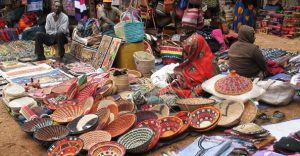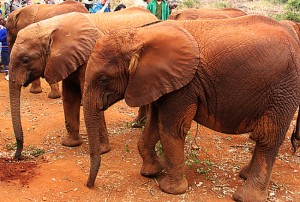Tourism, like anything else, has an impact on Kenya – both directly and indirectly. But it’s a mixed bag when it comes to evaluating the impact of tourism dollars on the economy. As much as tourism helps the country and its citizens develop and thrive, there are negatives that must be considered.
Employment
As with many African nations, tourism provides thousands of jobs to local residents in Kenya. Hotel staff, drivers, cooks, tour guides and airport personnel are all directly employed by the multi-billion-dollar industry. Thousands more are indirectly employed as construction workers, food suppliers, etc.
The unfortunate flip side of this is that the jobs are usually seasonal, and often menial.
In most parts of Kenya, tourism is a seasonal business, with additional staff being required during high seasons and less hands needed for off peak months. So for the locals who fall under the category of seasonal workers, employment is unsteady, making it difficult financially to get through the year.
Furthermore, many hotel chains will generally bring in their own staff from their home country for white-collar positions. This leaves only the low-income unskilled jobs for Kenyans locals, which offer minimal opportunities for advancement and consistency.
National income
Tourism in Kenya is a source of foreign exchange and income for the government. This helps reduce dependence on other sectors such as agriculture, which are subject to weather and market conditions that can often be unpredictable.
In the past, up to 21% of Kenya’s national income has been derived from tourism. These much needed funds have helped diversify the economy, and have been put towards developing the country’s infrastructure: projects such as public hospitals, schools, and roads have improved the overall standard of living for citizens.
But as much good as this income does, there is a downside. It is common for local governments to prioritize projects that could potentially help increase tourism income over projects that work towards the general well-being of local residents. In this way, locals may miss out on important amenities (such as healthcare, schooling, clean water or irrigation), as they are sidelined in favor of services to help increase tourist traffic.
For example, in an area where there are only enough funds to either refurbish a local health center or upgrade a road that leads to an area with a cluster of popular tourist hotels, local officials are likely to fix the road.
Furthermore, the income generated from tourist activities is not likely to funnel down to locals — the lion’s share will generally go to big industry players. Tourists are likely to frequent chain hotels, which are usually owned by foreign companies and divert very little of their income towards the Kenyan economy.
Local artisans and business owners miss out on the bulk of tourist revenue, gaining some limited income from curio purchases for example, but mostly serving local residents who cannot afford the rates at tourist-oriented restaurants, clothing shops, hotels and so forth.
International relations
Tourism — more so international tourism — provides an opportunity for good relations between countries. Key government interactions lead to business opportunities and development partnerships that are beneficial for both countries involved, especially the less financially able 3rd world countries.
Maintaining good international ties fosters a kinship that allows Kenya to develop in ways that would otherwise have been difficult to access. Cultural exchange between Kenyan citizens and tourists also helps paint a positive picture of the country overseas, fighting the stereotypical starving African child image commonly associated with our continent, as well as broadening Kenyan horizons by introducing them to cultures outside our own.
This interaction of cultures can go awry, however, as the more conservative Kenyan cultures meet more liberal foreign cultures. The more permissive Western approach to clothing, partying and sex could possibly offend a deeply traditional Kenyan.
A few vices have been indirectly associated with an increase in tourist activity, in spite of Kenyan laws regulating them: the sale and use of narcotics, prostitution, etc. Traditional cultures are also being slowly eroded as youth gravitate towards Western culture and abandon their language and customs in favor of “modernity.”
Conservation
Tourism has the positive side effect of encouraging wildlife conservation efforts. Tourists visit Kenya to see animals and landscapes unique to the country, giving the government incentive to protect them.
Though the incentive is primarily financial rather than humanitarian, forests, games parks, and cultural heritage sites are preserved as potential sources of income and will continue to remain as so, to the benefit of Kenyan locals, culture and history.
But this creates its own problem: unfortunately, tourist visits also cause a great disruption to wildlife, as natural habitats are invaded for the sake of viewing and photographing it.
Likewise, tourists’ preferences for certain commonly visited places like the Maasai Mara and the Kenyan coast puts pressure on local resources in those areas. Congestion and displacement of locals from their homes are just two ways this plays out.
For example, the Maasai people have only recently begun to be resettled after loss of their land, much of which was taken over to develop tourist-oriented activities and facilities.
Clearly, there are two sides to the Kenyan tourism coin: tourists are an important part of the Kenyan economy and they directly and indirectly help to preserve the country’s history and economy, but this comes at a price. Tourism often has less than pleasant implications.
The Rise of Ecotourism In Kenya



